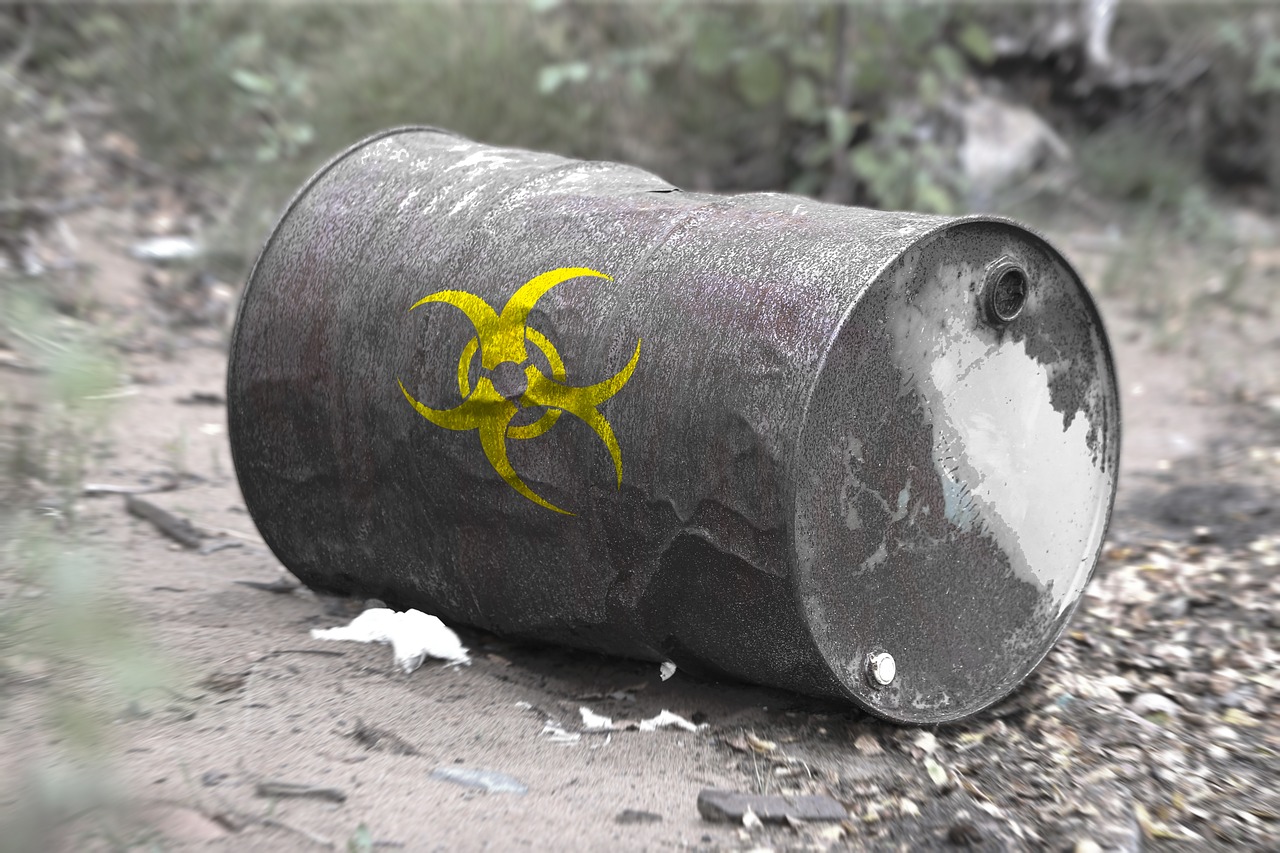Industrial development has been proven very beneficial to economic growth, however, in some cases, it can also have detrimental effects on the environment. Today thanks to a better management of waste generated by their companies, professionals are now aware of this. One of the most common and dangerous waste streams which are generated are the toxic wastes, also known as industrial hazardous wastes, which are extremely harmful to the population and the entire ecosystem if badly managed.
Indeed, these industrial wastes are flammable, chemical, corrosive, explosive, radioactive and carcinogenic. Thus, their treatment is subject to a rigorous protocol which respects and enforces safety standards. Being highly toxic, they cannot be abandoned in any natural biome or evacuated via sewerage networks; nor can they undergo non-compliant interventions by combustion or incineration.
Heterogeneous waste classified according to different categories
Industrial hazardous wastes are classified according to whether they are in solid, gaseous, pasty, liquid or semi-liquid state. Hazardous waste is mainly generated by industrial activities. The amounts produced and their composition are largely driven by production patterns. The most harmful ones come from the automotive, pharmaceutical, agricultural and petroleum industries. Same is true for the electronics and digital industry, as well as for the construction industry. Biotechnology and nanotechnology also produce specific types of hazardous wastes that are the subject of ongoing studies aimed to secure their disposal.
These toxic industrial wastes are thus heterogeneous waste and the legal obligations governing their management depend on their classification and their nature. This is the case in France, for example, where according to the decree dated 29 July 2005 concerning the filling of the consignment note (hazardous waste monitoring slip), which is stipulated in article R 541-45 of the Environment Code. These obligations relate to the collection, transport, sorting as well as the treatment itself, as all these wastes present high risks by inhalation or ingestion during their handling.
Collection and transportation
It is usually an approved waste carrier whose mission is to collect and transport industrial waste to specific centers that comply with the legislation, in particular those weighing more than 100 kg. It is mandatory to keep a tracking register, where the waste’s description, its nature and tonnage, the dates of collection and unloading as well as its destination is mentioned.
Sorting and processing
These operations are handled by a specialized professional who collects the load in sorting centers in order to extract the recoverable materials and eventually a possible depollution phase. The waste will then be redirected to centers dedicated to the appropriate sector where it will undergo the actual treatment.
There are thus different recycling plants: those handling aerosols, asbestos, batteries, Waste of Electrical and Electronic Equipment (WEEE), soiled packaging, used oils, soiled pastes and solids, laboratory chemicals, phytosanitary products, etc. The treatment is done either by recovery, by recycling, by physico-chemical or biological process, by incineration or even via landfill. Other protocols are reserved for certain categories of waste such as those resulting from nanotechnology and biotechnology as previously indicated.
The professionals in charge of these operations must also have received an authorization allowing them to practice according to the regulations in force. In addition, they have the obligation to ensure their traceability throughout the circuit and the processing chain.
Specialists in the recycling of industrial hazardous waste in Mauritius
Nearly 18,000 tons of toxic industrial waste are issued in Mauritius every year. These consist, for the most part, of pharmaceutical and chemical laboratory waste, pesticides, paint, aerosols, asbestos and WEEE. However, some of them cannot be processed on site and need to be sent to a specialized platform in order to be exported after being grouped, packaged and labeled. Other professionals, on the other hand, are still available, such as specialists in the recovery of used oils, as well as those in the collection and treatment of WEEE. BEM Recycling, based in Mauritius for 21 years, located at La Chaumière in the region of Black River is specialized in the recycling of WEEE, in full respect of the environment and the regulations in force. This concerns those that apply both internationally and on Mauritian territory.
